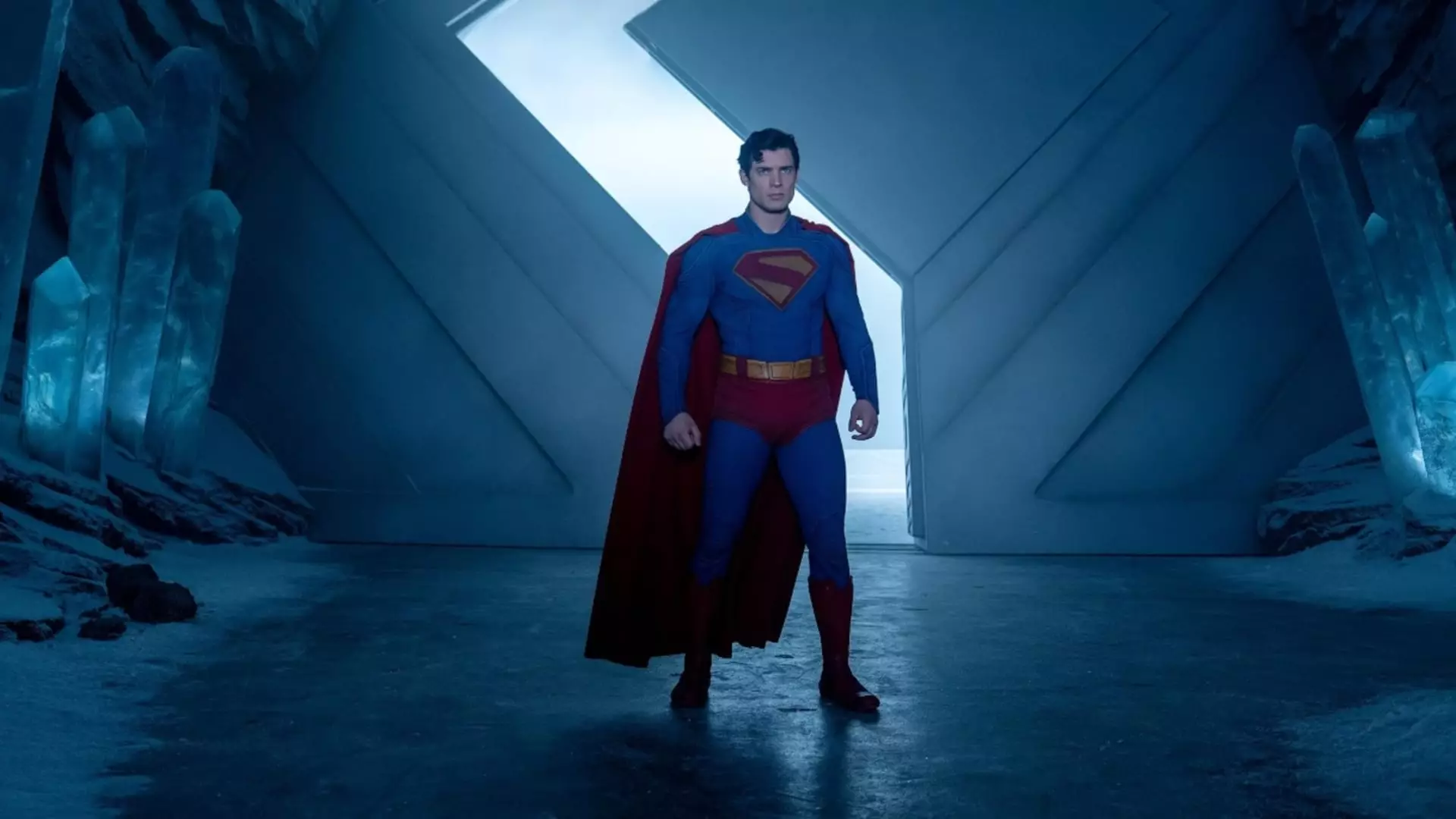The latest “Superman” film, heralded as the dawn of a new era under the stewardship of James Gunn and Peter Safran, appears to be staking its future on more than just high-flying stunts and CGI spectacle. It’s a bold attempt to reimagine a beloved icon in a landscape saturated with superhero movies that often exhibit diminishing returns over time. With an impressive preview haul of $22.5 million, the film’s early performance hints at a strategic shift — one that seeks to blend nostalgic appeal with innovative storytelling. However, beneath the surface, such optimism invites scrutiny. Can Warner Bros. truly resonate with modern audiences without falling into the trap of formulaic repetition or over-reliance on franchise familiarity?
The promising initial numbers position “Superman” as a potential game-changer. Yet, they are largely measured against historical benchmarks that showcase how difficult it has been for DC films to sustain momentum. Certainly, the previews are better than “Man of Steel,” but will this momentum translate into an enduring box office success? It’s worth questioning whether these initial gains reflect genuine audience enthusiasm or simply the power of marketing buzz. In an era where superhero fatigue is real and audience demands are more complex than ever, swinging for another blockbuster hit is a gamble that could backfire if the content doesn’t meet the high expectations set by these early figures.
The Merits and Risks of a Reclaimed Legacy
What sets this reboot apart is not just the opening figure, but the narrative direction Gunn and Safran aim to chart. They’re promising a Superman rooted in hope — a stark contrast to some darker, grittier adaptations of recent years. This ideological shift appeals to a broader, more optimistic demographic that yearns for uplifting stories amid the chaos of contemporary life. Yet, this approach raises questions about whether it might oversimplify complex societal issues or pander to nostalgia rather than genuine innovation. The danger lies in attempting to appease everyone while risking alienating core fans seeking a fresh, authentic take.
From a liberal perspective, this reboot could be a missed opportunity to challenge societal injustices or explore contemporary themes through Superman’s lens. Instead of merely reviving an archetype, there’s a responsibility to deepen its relevance — to reflect diverse stories, social realities, and moral dilemmas that resonate today. If the film merely recycles old tropes under the guise of hopefulness, it risks becoming background noise in a crowded genre that desperately needs introspection and evolution.
The Industry Landscape and the Future of DC
Warner Bros.’ gamble on this film reflects a broader industry trend: the attempt to breathe new life into aging franchises to sustain financial viability. However, this is also a moment of intense scrutiny. In an industry where superhero movies have become a routine, a new “Superman” must do more than set box office records — it must redefine its cultural significance. For Gunn and Safran, the challenge is balancing commercial appeal with storytelling integrity, avoiding the pitfalls of superficiality that have marred some recent efforts.
The fact that critics are largely supportive, with an 83% “Fresh” rating on Rotten Tomatoes, offers a glimmer of hope. Still, critical acclaim doesn’t always align with audience satisfaction or long-term relevance. Studios often fall into the trap of prioritizing immediate box office spikes over the sustainable development of a shared universe or character depth. If the new “Superman” can leverage its platform to address themes of justice, responsibility, and societal hope — beyond mere spectacle — it could serve as a catalyst for a different kind of superhero storytelling.
In the end, this film is more than just a restart. It’s a test of whether the industry can balance legacy with innovation, audience expectation with social responsibility. The stakes are high, not only for Warner Bros. but for the cultural role of superheroes in shaping collective imagination. And whether this reboot becomes a lasting beacon or a passing fad remains painfully uncertain, but one thing is clear: the future of Superman hinges on more than just impressive previews — it depends on genuine relevance and meaningful storytelling.

